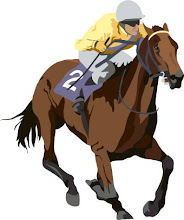First and foremost I would genuinely like to thank you for taking the time to allow me to interview you for Odds On Favorite.
OOF: During a time when an individual would work one job essentially their entire lives you had a number of career changes. While a police officer during the depression you worked your way through law school then founded a firm that went on to argue cases’ before the Supreme Court. You founded Kendall Jackson filling a hole in the market of producing a quality wine at an affordable price. And now you’ve moved into the realm of being a Thoroughbred owner and breeder. Of all these quite amazing accomplishments which avenue was the most challenging to undertake?
JJ: Every undertaking that one takes seriously is challenging and every challenge is unique. Because of that it would be very hard to compare one career challenge with another: they test you in different ways and reward you in different ways.
OOF: You caused quite a stir (to say the least) when you entered into the Thoroughbred industry. As you know there was a long standing ‘insiders” tradition that secret commissions and dual agency were just the way the industry works. As it has been described to me “every one gets cheated when they first enter the owners market” (including me). I know I’m not going to make any friends here but I respect what you did regarding your particular dealings and believe the changes you brought about will ultimately help Thoroughbred racing. Describe if you will what led you to undertake the legal action and not just accept what had happened?
JJ: Dual representation is unethical and illegal. Bloodstock agents deceive newcomers by conspiring with sellers to drive up prices. Then they split the overpayment. I sued and won. I didn't need the money. I just wanted to do what was right. Some people said I should have worked within the system: well, people tried that and it never worked. I took it up a notch and that seems to have worked.
OOF: You created more controversy by testifying before congress regarding the use of steroids within the industry. I personally believe in an outright ban on them and know you testified for that as well. Do you feel there will be a time within the near future where steroids will be permanently banned?
JJ: There first needs to be a single, unified body that governs the entire sport. Right now it’s a hodgepodge of different rules, different authorities, different penalties depending on where you race. I don’t think we’ll see meaningful changes until we have a single, authoritative organization.
OOF: You have made your disdain for Poly or “Plastic” tracks well known. What are your feelings regarding the future of plastic tracks and should the “powers that be” create three divisions of racing, dirt, turf and poly?
JJ: We should get rid of plastic surfaces altogether
OOF: You obviously had personal interaction with Curlin during his career; I remember for example watching you visit him just before the Breeders Cup in California
JJ: I am very close to Curlin and continue to spend a good deal of time with him. I have a deep affection for him.
OOF: His new foals will be hitting the ground “running” soon how do you foresee his stallion career developing and unfolding?
JJ: The point of breeding Curlin is to create racehorses that not only have speed and strength, but durability. I want to see the breed step up to another level—for the good of the horses themselves and the sport. When Curlin’s offspring become champions, it will underscore the importance of this direction of breeding.
OOF: How is Rachel progressing towards her reappearance next year?
JJ: Rachel will be in top form. She can’t wait to get going.
OOF: Although I thought Zenyatta’s performance in the Breeders Cup was outstanding looking at the overall body of work she and Rachel achieved over the course of the entire year I believe Rachel wins hands down. What kind of emotions do you think you would feel standing up on that stage to receive the Horse of the Year award three years in a row?
JJ: I would feel gratitude and respect for the voters. I would feel that they had truly recognized the horse that had the best year. I could not be more proud of Rachel and our team no matter what the HOY outcome.
OOF: Who would win in a race between Curlin and Rachel?
JJ: Who can say? That’s why we watch horse races.
OOF: What would you like your biggest legacy in Thoroughbred racing to be?
JJ: I would like to feel that I helped bring a higher level of integrity to the business—such as the elimination of dual agency and the establishment of a single, authoritative organization to oversee the sport. I’d like to think I contributed to the betterment of the race horse species and to the better enjoyment of the sport by the fans.











